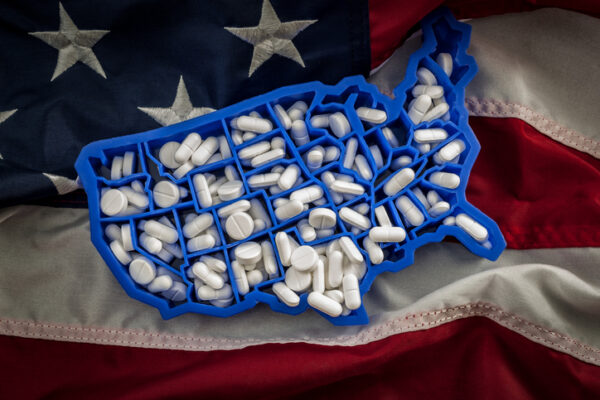
The U.S. Department of Justice has filed a lawsuit against Walmart Inc., alleging that through its network of pharmacies the retailer knowingly filled thousands of opioid prescriptions, which were not issued for legitimate medical purposes, at the height of the nationwide opioid crisis.
But Walmart, which operates more than 5,000 pharmacies across the country that dispense opioids and other controlled substances, claims the lawsuit is misguided, “riddled with factual inaccuracies, mischaracterizations and cherry-picked documents taken out of context.”

With the Rise of AI, What IP Disputes in Healthcare Are Likely to Emerge?
Munck Wilson Mandala Partner Greg Howison shared his perspective on some of the legal ramifications around AI, IP, connected devices and the data they generate, in response to emailed questions.
The DOJ’s suit, filed Tuesday, states that the retailer violated the Controlled Substances Act in several ways, including making it difficult for its pharmacists to follow well-established rules requiring them to scrutinize prescriptions of controlled substances to ensure that they are valid.
“Walmart managers put enormous pressure on pharmacists to fill prescriptions — requiring pharmacists to process a high volume of prescriptions as fast as possible, while at the same time denying them the authority to categorically refuse to fill prescriptions issued by prescribers the pharmacists knew were continually issuing invalid prescriptions,” the complaint states.
Further, Walmart’s compliance unit collected information showing that its pharmacies were regularly being asked to fill invalid prescriptions, but that information was withheld from pharmacists for years, the suit claims.
Another major allegation centers on Walmart’s failure to report the “hundreds of thousands of suspicious orders” it received to the Drug Enforcement Administration as required.
“Walmart kept in place a system that it knew was failing to adequately detect and report suspicious orders,” the lawsuit states. “Walmart periodically considered fixing its system, but time and time again it chose not to spend the time, money, and effort needed to bring its process into compliance.”
By not following basic rules, Walmart “helped fuel a national crisis,” the suit alleges.
The Justice Department is seeking civil penalties — of up to $67,627 for each unlawful prescription filled and $15,691 for each suspicious order not reported — and injunctive relief from Walmart.
“As one of the largest pharmacy chains and wholesale drug distributors in the country, Walmart had the responsibility and the means to help prevent the diversion of prescription opioids,” said Jeffrey Bossert Clark, acting assistant attorney general of the civil division, in a statement. “Instead, for years, it did the opposite — filling thousands of invalid prescriptions at its pharmacies and failing to report suspicious orders of opioids and other drugs placed by those pharmacies. This unlawful conduct contributed to the epidemic of opioid abuse throughout the United States.”
From 1999 to 2018, more than 232,000 people died nationwide from overdoses involving prescription opioids, according to the Centers for Disease Control and Prevention. Opioid-related overdose deaths were more than four times higher in 2018 than in 1999.
In a statement posted to its website, Walmart asserts that it is helping fight the opioid crisis and that the new lawsuit is “misguided and misleading.”
According to the retailer, its pharmacists have refused to fill hundreds of thousands of opioid prescriptions that appeared to be problematic.
Walmart also said that the Justice Department is trying to make pharmacists take on the role of the DEA’s “doctor police,” and assess whether or not to fill a prescription “without the benefit of a medical degree, without examining the patient, and without access to the patient’s medical records.”
In October, Walmart preemptively sued the Justice Department and the DEA, asking a federal court to clarify the roles and responsibilities of pharmacists and pharmacies under the Controlled Substances Act.
“DOJ is forcing Walmart and our pharmacists between a rock and a hard place,” the retailer said in a statement. “At the same time that DOJ is threatening to sue Walmart for not going even further in second-guessing doctors, state health regulators are threatening Walmart and our pharmacists for going too far and interfering in the doctor-patient relationship.”
Photo credit: Moussa81, Getty Images














